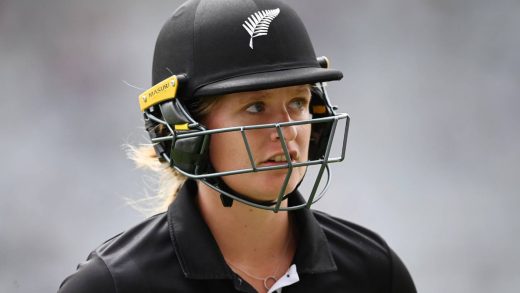
Last week we said our last goodbye to Succession, to its petty power plays, its unrelentingly nasty dialogue, its excellent knitwear. Buzzy and brilliant, the series was so caustically funny, so emotionally exhausting, so tonally tricky that no one could decide whether it was a Seinfeldian “comedy about nothing” or a tragedy of Shakespearean dimensions.
In its extraordinary, extended final episode, Succession somehow managed to be both.
The title, With Open Eyes, is a nod to a John Berryman poem that references eyes both open and sightless. It’s not just the characters who are blinded, though, their vision clouded by a desperate need for corporate power and paternal affirmation. The title might also be a warning to viewers, a hint that maybe we’ve been watching without always seeing.
Succession is a show that expertly manipulates expectations, and perhaps its best bait-and-switch has been to get us all obsessing over the issue of which deeply damaged, hugely unqualified Roy sibling would end up seizing control of the Waystar Royco empire.
With weekly power rankings, shifting pundit predictions — and reportedly, some actual betting pools — we became distracted by the big question of who would win. The grim lesson of the finale, however, was that nobody could win this dynastic deathmatch, such a noxious blend of zero-sum capitalism and debilitating family dysfunction.
Succession’s final season played around with possibilities. Roman (Kieran Culkin), whose nihilism and penchant for incest humour always made him a longshot, was planning a powerplay at his father’s funeral. Ironically for a character who’s spent most of the show’s four seasons dodging anything resembling real human-being-type emotions, Roman instead begins publicly and uncontrollably weeping, which could prove to be a personal breakthrough but is probably not something that scores points in Roy World.
The machinations of Shiv (Sarah Snook), the overlooked, underestimated daughter, were so devious viewers couldn’t decide whether she was a martyr or “Lady Macbeth, Part 2,” a traitor to the sisterhood, for her transparently transactional version of corporate feminism, or a victim of the patriarchy. Her bid for leadership ended up threatened by whispers about her pregnancy, with toxic tech bro and potential ally Lukas Matsson (Alexander Skarsgard) immediately demoting her from “cool girl” to “baby lady.”
Kendall (Jeremy Strong) was banking on primogeniture: “I’m the eldest boy,” he says, even though, technically, he’s not. A seeming consolidation of support saw him actually smiling, which only underlined how freakishly rare this was. Kendall even had some moments where he seemed to be actually good at business, managing to go beyond his usual borrowed corporate jargon and hilariously inept street talk. But he wasn’t content with replacing his monstrous father. He wanted to become him, which was maybe a risky overshoot.
But who were the real losers here?
We’ve been so mesmerized by the wretched Roy clan, all of them irredeemably awful but still eminently watchable. We’ve been so seduced by their rarified world of black Range Rovers and private helicopters and glass penthouses. We’ve been so invested in their eye-clawing conflicts that we’ve maybe forgotten it doesn’t actually matter which Roy wins and which Roy loses — whatever “losing” might mean to people who will still have more money than they could ever spend.
But constantly, quietly, in the background of the stories, in the edges of scenes, we’ve glimpsed the people who really lose by the actions of these characters — the small business owners the Roys stiffed because they could, the Waystar employees culled in mass layoffs, the viewers and voters misled by the family’s democracy-endangering media empire, the wage workers abused and exploited. All of the people down here on the ground.
You know, us. The non-billionaires. We were the mostly unseen subtext of this Battle Royale.
If you value coverage of Manitoba’s arts scene, help us do more.
Your contribution of $10, $25 or more will allow the Free Press to deepen our reporting on theatre, dance, music and galleries while also ensuring the broadest possible audience can access our arts journalism.
BECOME AN ARTS JOURNALISM SUPPORTER
Click here to learn more about the project.

Alison Gillmor
Writer
Studying at the University of Winnipeg and later Toronto’s York University, Alison Gillmor planned to become an art historian. She ended up catching the journalism bug when she started as visual arts reviewer at the Winnipeg Free Press in 1992.
Read full biography


